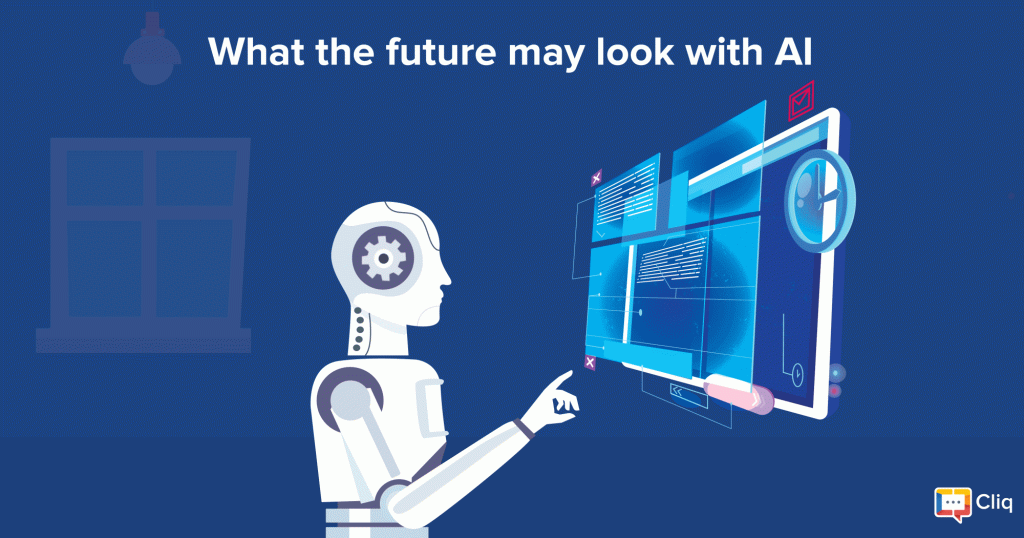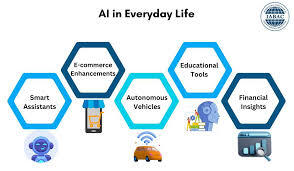How Artificial Intelligence Will Change the Future?

Artificial Intelligence is no longer a futuristic concept. Artificial intelligence is currently taking every field to the highest reach. It helps us to do our tasks intelligently without our interference. AI is helping in many fields solving problems and creating new possibilities. AI will change the future of each sector in a drastic way where most of the tasks will be controlled by machines only. In this Blog we will discuss How AI will change the future in these four areas:
1.Future of Marketing: Personalize at Scale:

Traditional Marketing works on Large customers. But AI (Digital Marketing) enables personalized experience for every individual.
you can read here more about on digital marketing.
Personalized Ads:
AI tools analyze large amounts of data from social media platforms, extract insights into each person’s behavior and interests, and show ads that match those interests.
Artificial Intelligence-Driven Customer Service:
AI has developed tools that can provide chat support 24/7 by solving complex queries and solving customers’ problems. We can use these tools in different sectors for eg. hospitals, colleges, websites, etc. This also satisfies the user experience.
Analyze Big Data:
By analyzing, AI will process data and analyze human behavior. What type of products and problems they are searching for and allowing marketers to anticipate needs and offer products before customers realize they want them.
2.Artificial Intelligence has change the future of Medical Field:

Working as an assistant and robotic surgery:
Doctors are taking assistant work from AI Tools like diagnosing the problem, or illness. Very soon, robotic surgery will become very precise, and less time for recovery. robots will also provide personalized advice, and remind them to take medicines.
Early diagnosis:
AI algorithms are designed to know the symptoms of any big problem ( cancer, heart conditions) by just analyzing patient data and medical images.
Treatments at home:
Sometimes, people are busy and can’t reach the hospital they can use AI tools to tell them their problems. Tools will give them medication advice and people can easily order from their mobile.
3. AI doing wonders in education:

the future of education will not be recognizable in some years.
Personalized learning material:
AI tools will assess the individual’s learning capability, strengths, and weaknesses and then offer them customized material to learn those concepts easily. For eg. If a student’s grammar is weak then AI will provide them additional resources to learn that. Artificial Intelligence has changed the future of Study methods in innovative ways.
Automated attendance and grading:
AI will do automated attendance of students, check the mark sheets, and give grades accordingly. So that Teachers can spend time educating them. Grading in real-time will tell results immediately. Which will help them to study weak points.
4.AI has changed our personal lives:

AI has made our life easy in our day-to-day tasks.
Appliances managed with Artificial Intelligence:
Switches of all appliances can be managed with AI. AI apps will play a larger role in managing households. It will optimize energy use and reduce costs. Artificial Intelligence has shifted human lives in a tremendous way.
Personal Assistants:
AI Assistants like Siri, Alexa, and Google Assistant will manage daily tasks like scheduling meetings, calling, sending text messages, and sending emails efficiently.
It will teach your behavior and make your grocery lists also prepare a travel list.
Conclusion:
what is artificial intelligence in simple words?
when machines or computers are designed to think and learn like humans. It allows them to solve problems, make decisions, and even recognize patterns. For example, AI can help a phone suggest the next word when you’re typing or help a robot navigate through a room without bumping into things. Essentially, AI helps machines do tasks that usually need human intelligence, like understanding language, playing games, or even driving cars. Data source.



